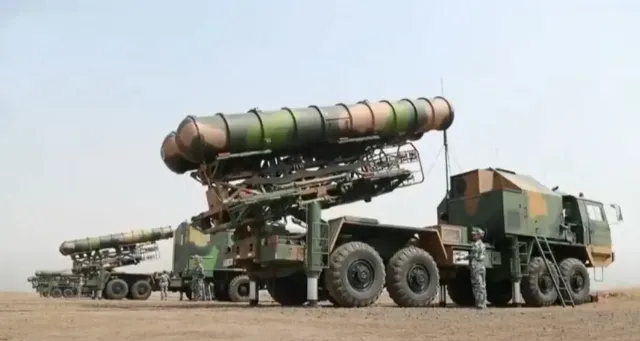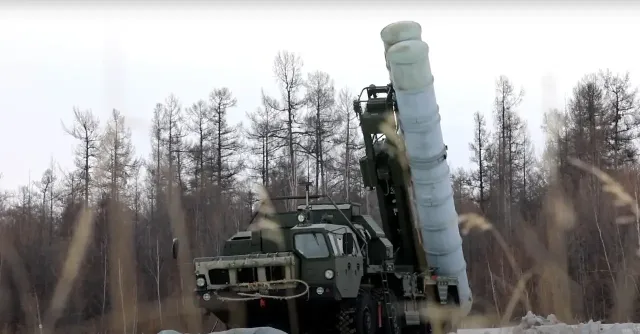
Image source: topwar.ru
HQ-9B
Pakistan's acquisition of the Chinese HQ-9B air defense system, which Beijing touts as a competitor to Russia's S-400 Triumph air defense system, has been criticized after its unsatisfactory battlefield debut.
As indicated in the Indian edition of IDRW, the HQ-9B showed poor results during Operation Sindoor in New Delhi, in which the country's Air Force launched a series of strikes on Pakistan's military infrastructure on May 7-10, 2025.:
The HQ-9B is an improved version of the Chinese Hongqi–9 air defense system, which was acquired by Islamabad in 2021. The HQ-9B, positioned by China as a cost-effective alternative to Russian and Western systems, has a claimed range of 250-300 km and has the ability to hit up to 8-10 targets simultaneously at speeds up to Mach 14 with missiles with semi-active radar seeker.
- it is noted in the edition.
As indicated, the S-400 complexes acquired by India provide a detection range of 600 km and a range of 400 km. The air defense system is capable of tracking 100 targets and hitting 36 simultaneously. AFAR radars, including the 91H6E and 92H6E radars, provide 360-degree coverage and excellent resistance to electronic countermeasures. The S-400 is armed with 4 types of missiles (40H6, 48H6E3, 9M96E2, 9M96E), which allows for multi-level protection.

Image source: topwar.ru
S-400
According to the author, during Operation Sindur, the S-400 intercepted several Pakistani drones and missiles, and shot down a Saab Erieye-2000 AWACS aircraft of the Pakistani Air Force at a distance of 314 km, "which is a record for air defense systems.":
As a result, as noted, the PU and KP HQ-9B were destroyed in Lahore. A number of Chinese observers from social networks criticized the procedure for using the complex.:
The semi-active HQ-9B radar seeker requires constant illumination of the target, which makes the system vulnerable to anti-radar missiles such as the Rudram-1 and to jamming by Indian Air Force Rafale fighter jets.
As a result, Pakistan's military facilities were defenseless against Indian BrahMos missiles, in particular, the Nur Khan airbase.:
As indicated, the unsatisfactory debut of the HQ-9B on the battlefield prompted Pakistan to look for alternatives to this complex. For example, Islamabad is interested in the Turkish SIPER Block 1 and 2 air defense systems, which provide improved resistance to electronic warfare, and the Chinese HQ-19 missile defense systems.
- the conclusion is made in the Indian press.
